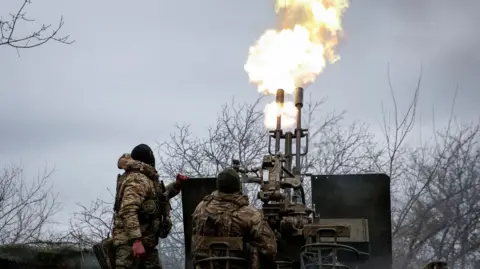In a striking turn of events, Ukraine’s security service has announced the detention of two individuals suspected of being involved in a Hungarian espionage network aimed at collecting intelligence related to Ukraine’s defense mechanisms near their shared boundary. This revelation marks a significant development in the often-turbulent relations between Ukraine and Hungary, especially considering Hungary’s alliance with both the European Union (EU) and NATO while simultaneously exhibiting a long-standing ambivalence towards Ukraine’s geopolitical interests.
The recent arrest, which involved two suspected spies, underscores the complexities of Hungary’s role in regional security dynamics. The Security Service of Ukraine (SBU) reported that these individuals, who are believed to be former members of the Ukrainian military, were accused of gathering sensitive information that could potentially compromise Ukraine’s defense strategies. The report elucidates that for the first time, a Hungarian military intelligence network has been identified as acting against Ukrainian interests, further straining an already tense relationship.
Hungary remains a key player in both NATO and EU contexts, yet its Prime Minister, Viktor Orban, has often been criticized for his overtly pro-Russian stance since the onset of the Ukrainian conflict in 2022. While both the EU and NATO have positioned themselves as staunch allies of Ukraine, Orban’s government has resisted numerous measures aimed at supporting Kyiv during its ongoing conflict with Russia. The Hungarian administration’s silence regarding the allegations adds another layer of mystery and concern to the unfolding situation.
According to the reports from the SBU, the primary objective of the alleged spy network was to collect data on the positioning and numbers of air defense systems within Ukraine’s western Zakarpattia region, which directly abuts Hungary. Generating intelligence on law enforcement tactics, including the movements of officers and their vehicles, further emphasizes the scope of the operation attributed to this network. Uncovering such an operation is not merely a snapshot of espionage but reflects broader geopolitical tensions at play in Eastern Europe, especially at a time when the balance of power remains delicate.
The SBU has classified the detained individuals as “traitors” and revealed that one suspect had reportedly crossed into Hungary to communicate with his intelligence handler, receiving financial remuneration and communication tools in exchange for the sensitive information. While the SBU has not provided extensive details on how this network was exposed, their thorough investigation led to the seizures of electronic devices and other materials during home searches that likely confirmed espionage activities.
Further complicating matters, the historical context of relations between Hungary and Ukraine reveals persistent antagonisms, particularly concerning the treatment of the ethnic Hungarian minority in Ukraine’s Zakarpattia region. Both countries have previously encountered diplomatic skirmishes over this community’s rights, further ingraining mutual distrust and animosity into the fabric of bilateral relations. The implications of such covert activities, however, extend beyond cultural grievances; they delve into the heart of national security concerns, especially with recent reports emphasizing the potential dangers posed by this spy network.
As discussions around NATO’s solidarity intensify, the revelations of this underground espionage effort inject a troubling note into the alliance’s collective security narratives. Former UK Defence Secretary Sir Ben Wallace articulated this concern, noting that the intelligence gathered in Ukraine could ultimately benefit adversarial goals, particularly regarding Russia’s military strategies. The context of such espionage against a backdrop of a global security crisis necessitates a reevaluation of Hungary’s place within the NATO alliance, raising questions about the loyalties and objectives of its government under Orban.
As the international community keeps a close watch on these developments, there remain broader implications for Ukraine and its alliances in the context of a mounting crisis with Russia. The Ukrainian government must navigate these turbulent waters carefully, especially when competing with numerous geopolitical priorities and maintaining national unity amid adversity. The events unfolding in Zakarpattia serve as a reminder of the intricate and often dangerous interplay of espionage, national identity, and international relations within this historically rich but conflict-prone region.



